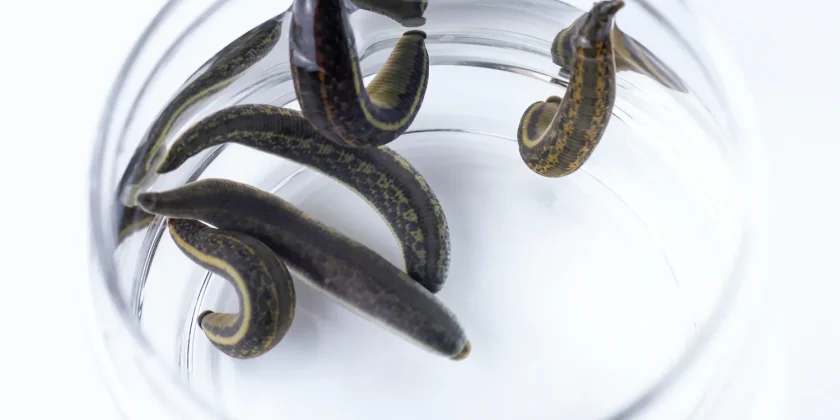How to Treat a Leech Bite: Home Remedies and Medical Care
How to Treat a Leech Bite: Home Remedies and Medical Treatment
Leech bites are usually not painful, and they typically come during an intended therapy. But whether you encounter a leech in the wild or in therapy, you need to take care of it properly to avoid pain or infection. Here is what you need to know about how to deal with a leech bite at home, and when you need to take it to the doctor.
What Happens After A Leech Bite?
When a leech attaches to your skin, it pierces the skin with its tiny teeth and eats blood. A leech’s saliva is a source of anticoagulants that keep blood from clotting and anesthetics that alleviate pain. Once the leech comes free, the wound can bleed for hours on end from these anticoagulants.
Home Remedies for a Leech Bite Infection.
- Remove the Leech Safely– Don’t pull the leech off because its mouth will stick to your skin, putting you at increased risk for infection.
- Slide a flat object such as a credit card under the leech’s mouth to remove it.
- Alternatively, sprinkle salt, vinegar or lemon juice close to the leech to cause it to disengage.
2. Clean the Bite Area
- Clean the bite area with soap and water to eliminate remaining saliva or debris.
- Dry the skin with a towel.
3. Stop the Bleeding
- Pressure the area with a fresh gauze or towel to stop the bleeding.
- Cover the wound with a clean bandage and apply pressure if bleeding continues.
4. Prevent Infection
- Dab the bite with an antiseptic cream or ointment.
- Rinse the area clean and dry to avoid bacterial contamination.
5. Reduce Itching and Swelling
- Apply over-the-counter hydrocortisone cream or an antihistamine to prevent itching and swelling.
- Applying a cold compress also relieves irritation.
How to Get Medical Treatment?
Although most leech bites are benign, get yourself to a doctor if:
- – The bleeding does not end after hours.
- Infection is seen with redness, heat, swelling or pus.
- You develop an allergic reaction, such as breathing difficulties, hives or excessive swelling.
- The leech’s teeth are still stuck into the skin.
- You are ill or feverish after being bitten.
Preventing Leech Bites in the Wild.
- Wear long sleeves, pants, and leech socks when you’re visiting leech sites.
- Use DEET insect repellents on exposed skin.
- Don’t go swimming in ice-cold water or through weedy patches where leeches exist.
Leeches typically do not transmit disease to humans, but bites can get infected if left unwashed.
The majority of leech bites subside within a week, although you might experience some scarring or discoloration.
Seek medical attention so the head can be safely shaved off to prevent infection.
Leech bites are 99% harmless, although infections or allergic reactions can occur in very rare circumstances.
Leech bites can be treated with proper treatment and precautions. If you follow these guidelines, you can get back to work quickly without the danger of complications. If you’re not sure, seek help and treatment from a doctor.



